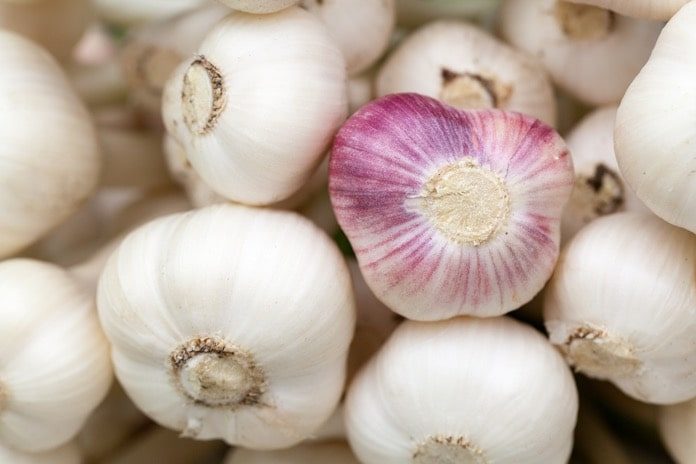Garlic (Allium sativum) has been used as a dietary supplement to treat multiple ailments. Here, we discuss the validity of the claimed health benefits of garlic.
Garlic is the edible bulb from a plant in the lily family. It has been used as a dietary supplement for high cholesterol, high blood pressure, and the common cold. People have also traditionally consumed garlic to prevent cancer and other diseases.
There is also evidence that garlic may be useful for stabilizing blood pressure, enhancing immune functions, protecting against infections, and supporting cardiovascular functions. While fresh garlic, garlic powder, and garlic oil are used to flavour foods, garlic dietary supplements can be made into tablets or capsules and garlic oil may be applied to the skin.
1. Lowering cholesterol levels in the blood
It is unclear whether garlic lowers cholesterol levels in the blood. Studies have found that the effect is small and low-density lipoprotein cholesterol may not be reduced at all. However, analyses of clinical studies indicate that garlic extract is moderately effective in lowering cholesterol and triglycerides in the serum.
2. Treating high blood pressure
Garlic may be helpful for high blood pressure, but current evidence based on research studies is weak. In 2014, an analysis of 20 studies implied that garlic supplements are better than placebo at lowering blood pressure in patients with hypertension by an average of 8–9 mmHg in systolic blood pressure and 6–7 mmHg in diastolic blood pressure, which is similar to the effects of most prescription blood pressure lowering agents.
However, multiple other studies have determined that garlic supplements do not lower blood pressure in people who do not have high blood pressure, and the response to and effectiveness of garlic supplementation depends on genetics and diet. For instance, a three-month long study found large variations in blood pressure readings with garlic supplementation, ranging from no reductions in blood pressure to reductions as much as 40 mmHg.
3. Preventing cancer
Studies have demonstrated that people who consume more dietary garlic may be less likely to develop certain cancers, including stomach and colorectal cancers. However, garlic supplements have not been proven to reduce the risk of developing these cancers. Even though the National Cancer Institute appreciates garlic as a vegetable with potential anticancer properties, they do not recommend using garlic dietary supplements for cancer prevention.
4. Treating the common cold
The National Institute of Health currently has not found enough evidence to dictate whether garlic is helpful for treating the common cold. An analysis of eight studies using garlic supplements to treat the common cold found only one of these studies to be valid, which assessed 146 participants over a three-month period. Half the participants took a placebo and the other half took a garlic supplement, then wrote in a diary when they had cold symptoms.
This study found that people who took garlic supplements every day for three consecutive months had fewer colds: 24 occurrences of the common cold with garlic supplementation and 65 occurrences with placebo. The participants who did experience a cold had the same length of illness regardless of whether they consumed garlic supplements or placebo.
Garlic Safety
Side effects of consuming garlic products, particularly raw garlic, include breath and body odour, heartburn, flatulence, nausea, diarrhea, and upset stomach. In addition, garlic may increase the risk of bleeding. Therefore, it is important to speak with a health care provider if other blood-thinning medications are being used before taking garlic dietary supplements. Garlic has also been found to interfere with the effectiveness of some HIV drugs.
Written by Tatsiana Verstak, M.S., B.S.
References:
- Garlic by the NIH: National Center for Complementary and Integrative Health. Last modified September 2016.
- Lissiman E, Bhasale AL, Cohen M. Garlic for the common cold. Cochrane Database of Systematic Reviews 2014, Issue 11. Art. No.: CD006206.
- Ried K, Fakler P. Potential of garlic (Allium sativum) in lowering high blood pressure: mechanisms of action and clinical relevance. Integr Blood Press Control. 2014;7:71–82. Published 2014 Dec 9.



